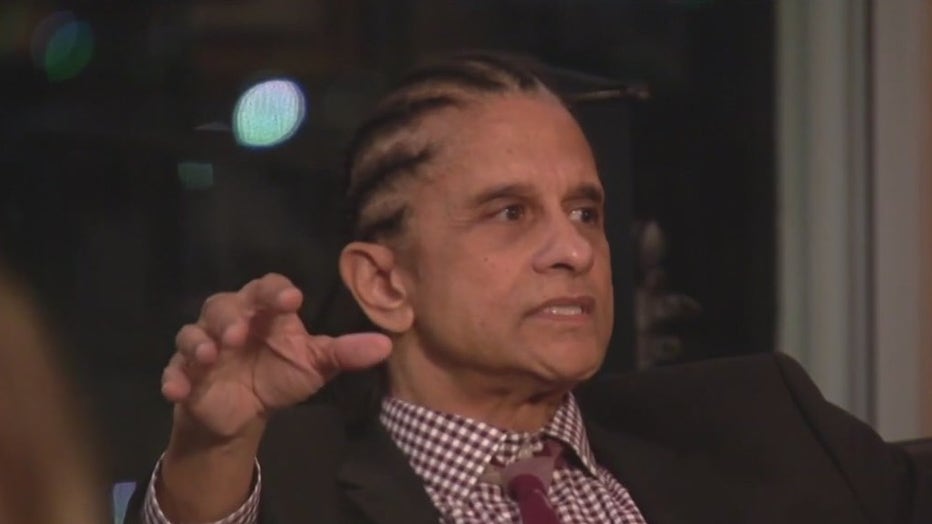Black History Month: USC students discuss social, political and racial justice issues
LOS ANGELES - Every Wednesday evening, a group of community members and USC students gather to discuss social, political and racial justice issues.
The discussion is led by USC Professor of Law, Jody Armour.
"We don't have any politically correct opinions. We challenge boundaries. We interrogate one another's position and I tell them to be an effective advocate, you have to be able to make an argument for the other side that's more even eloquent than they can make and then take on that argument, so you have to see both sides as much as possible," explained Armour.
FOX 11 went to a session where politics was the main topic discussed, as well as the ideology of a two-party system.
"It [politics] is always important because it defines our collective life, what it's going to look like, our social arrangements and the basic structure of society will be determined by politics, so are they [the students] thinking that the political system is serving the interests of socially marginalized groups that we study every week, especially Black folks who have been marginalized in this country's existence from the beginning," said Armour.
The students in the class come from diverse backgrounds, and all share their viewpoints. Armour believes it's important to connect with young students.

"These people really are the future but not just that, our present. When you look at the George Floyd protests in 2020, here in LA, we had the streets filled six weeks in a row every day and night with tens of thousands of people, most of them young people. A good number of young folks who were active and wanted to see political change. It is really important to understand how they've already moved the needle and how much leverage they have potential in them if they start to act as a collective," said Armour.
SUGGESTED: In Depth: 30 years since the LA Riots
Students like Dolapo shared their views about the two-party system.
"He [Professor Armour] asked what is a party that is doing something for you right now and my answer is there is no party that's doing those things for me right now. I don't vote red and I'm not a Republican. I wouldn't call myself a Democrat either. I'm a queer Black person. There's nobody who is fighting for all those intersections and the things that I care about and it's always constantly a lesser of two evils. I don't want to have to choose between the frying pan and the fire. In my daily life, I don't want to be living on the edge of survival so why does my politics have to be in the same way as well," said Dolapo.
Dolapo said there are many issues that matter and aren't being addressed.
SUGGESTED: Pío Pico: Last California Governor under Mexican rule
"Cancel student loans! I believe that on another level as someone who has a lot of loans and at the same time, it's the basic needs stuff. Why are there people in this country who don't have access to water, food and shelter and there are also people who have 15 homes and forget those homes exist. We [Black people] go outside and say don't kill us and they just watch, Democrats and Republicans do that," said Dolapo.
Dolapo also said it's problematic to see Black people as a "monolith."
"With others, especially white communities, we allow for a lot of multifaceted-ness to happen but when you're talking about the Black community, you are also talking about poor people and rich people, right and left, queer and straight people, you are talking about so many facets of people," said Dolapo.
The majority of students in the discussion said they do not identify with the two-party system, and hope for other organizations to develop in the future. A few students said they identify more as a revolutionary or an abolitionist.

